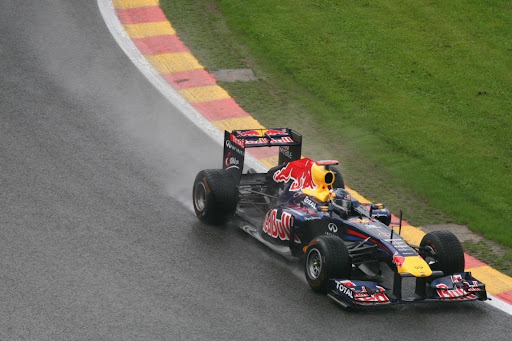
As a growing number of major automobile manufacturers pledge to invest their long-term future in road cars that are 100% electric, including Mercedes, McLaren, Ferrari, Renault, and Aston Martin, the question of what will happen to some of these brands' leading Formula 1 team becomes increasingly pressing.
In October last year Honda, which supplies engines to the Red Bull team, announced it would be pulling out of F1 at the end of this year to concentrate its engineering focus on carbon-free technology.
And according to The Drive magazine, "Mercedes-Benz will be ready to go all-electric by the end of this decade, where the market allows."What effect this announcement might have on Mercedes' Formula 1 team we won't know for now. It is almost certain that the team will remain in the sport until the introduction of the new engines in 2025, so any departure is likely only after that.
But these are not new concerns- Formula 1 has been evolving with the time for decades. With its origins in European single-seated racing in the 1920s, the sport has kept pace with over a century of technological revolutions. It has also been the laboratory of the motor industry, serving as a testing ground for nearly all the technology found in road cars today.
But now, pressure for change in the sport does not just come internal regulation, but from public policy and international legislation. Most notably, the EU's new CO2 emissions target for 2035 - passed last month - will ban sales of combustion engine cars in the markets where a majority of F1's races are held.
As the idea of modern vehicles turns towards decarbonization and sustainability, how does a racing series based on pushing the limits of petrol engines fit into this future?
In fact, it looks likely to fit in very naturally. Formula 1 has one of the most ambitious sustainability programs of any major sport and in 2019 it announced its plan to go net zero by 2030, with targets including net-zero impact from race cars, ultra-efficient and low/zero-carbon logistics and travel, 100% renewably powered offices, facilities and factories, and high-quality offsets and Co2 sequestration programs.
The sport has taken steps to reduce the number of people and freight that travels between race venues, by around a third, and has slimmed down its traveling media operation.
F1 has also significantly reduced the personnel involved in the media operation abroad. The media feeds from all races are now produced and broadcast from the sport's HQ at Biggin Hill in Kent.
But the most cutting-edge developments are happening under the hood. For the coming Formula 1 season, cars will be running on more sustainable fuel. Current regulations see cars running on fuel containing 5.75% bio-components.
And while F1 is still working hard to introduce fully sustainable fuel in the near future, 2022 will see the bio-component ratio rise to 10%. That will be achieved through a move to 'E10 fuel' – 'E' standing for ethanol, while '10' refers to its percentage in the mixture.
Crucially, though, that ethanol must be a second-generation biofuel made in a sustainable way, meaning it will have a near-zero carbon footprint – an "interim step", in the words of Formula 1's Chief Technical Officer Pat Symonds, which will also help the sport align with current road car fuel regulations.
According to F1 managing director for motorsports Ross Brawn, Hydrogen-powered cars could also play a role in the future of Formula 1. The engineer behind Michael Schumacher's seven world titles ruled out a switch to fully electric vehicles."Maybe hydrogen is the route that Formula 1 can have where we keep the noise, we keep the emotion but we move into a different solution," Brawn recently told the BBC.
As the former F1 driver for Mercedes, Nico Rosberg told Reuters, "You've got Formula E being the pinnacle of electric motor racing and then I think you'll have Formula One being the pinnacle of synthetic fuel motor racing.
"Both are very exciting paths and both can have a very positive impact on our world."
Racing is not just entertainment; it is the laboratory discovering the transfer of technology between motorsport and road cars. Through its promotion of hybrid engines, Formula 1 is already reflecting the global seismic shift towards sustainable mobility as the most exciting form of mobility.









